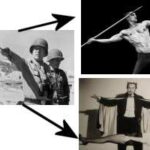When a business advances from stage 3 to stage 4, the business transformation is nearly complete. During stage 4, company decay can often begin to set in as the administration of the business is placed in the hands of a “guardian.”
The primary motives of the business guardian are comfort and security. Unity towards a purpose is absent and replaced with self-interest. The layered class structures fail to understand each other; leaders and followers grow more distant. Workers doubt their leaders have any clear vision and are no longer willing to dedicate themselves to the company’s mission.
Workers are in it for the money and generally are just going through the motions. Internal harmony breaks down and the guardian increasingly seeks unfamiliar solutions to problems he does not fully understand. The board of directors are indebted to the leadership and conform rather than challenge leadership.
Guardians spend most of their time in meetings trying to understand what has or will go wrong. They believe tighter control will solve their problems, making matters even worse. They are more concerned with how Wall Street or the investors see the company than the customer.
Stage 4 companies become so inept in the industry they are challenged by start-ups and are frequent targets of acquisition by competitors. Finally, the culture of a business in stage 4 is one of inaction and has achieved the same level of bureaucracy as our government.
The entire evolution of a business can be seen in the life cycle of Xerox.
Stage 1– Chester Carlson invented copier technology and was the oracle. He spent nine years trying to sell the technology with no real progress.
Stage 2 – The company moved to stage 2 when Wilson Haloid, the general, took charge and funded research to turn the idea into the product we know as xerography.
Stage 3 – Enter Horace Becker, the athlete that managed engineering and manufacturing which turned xerography into a reliable product. Horace was succeeded by Joe Wilson, the performer that changed the model from selling to leasing, growing the company to be so large Xerox became a virtual monopoly.
Stage 4 – Anti-trust suits were filed. Afraid to act, Xerox was taken over by lawyers and Xerox evolved into a bureaucratic culture under Peter McColough, the guardian.
Do you work for a stage 4 business? Is now the time to leave and become an entrepreneur?












